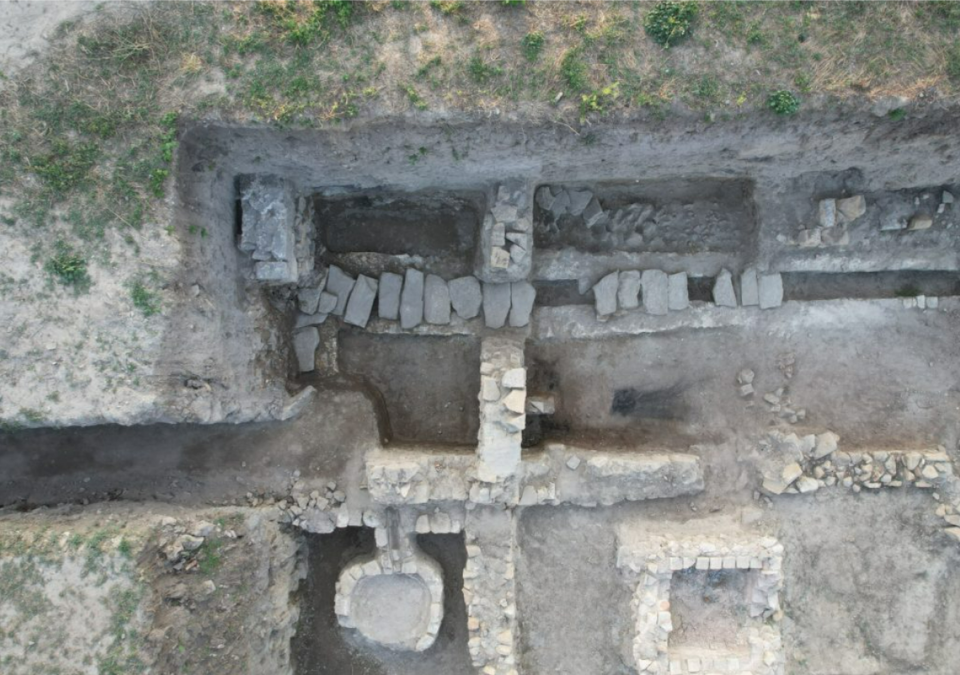Aspen Pflughoeft
Mon, September 18, 2023
7
While excavating an ancient Roman military camp in Bulgaria, archaeologists unearthed a rare — and relatable — find: a stocked refrigerator.
Archaeologists were excavating the ruins of Novae, a Roman-era military fortress, when they uncovered lead and ceramic water pipes, the University of Warsaw said in a Sept. 13 news release.
Next to the lead pipes, they found an ancient “fridge,” a food storage unit made with ceramic plates, lead archaeologist Piotr Dyczek said in the release. The fridge still had a meal inside, including wine drinking vessels, bowls and animal bones.
The exact age of the fridge and its contents have not yet been determined.
A similar fridge was found in Novae last October, McClatchy News reported. This cooling unit still had traces of cooked meat, animal bones and dish fragments inside.
“The discovery of such ‘refrigerators’ are rare, because they rarely survive reconstructions of buildings,” Dyczek said previously.

An aerial view shows some of the ruins at Novae.
Novae was built for Roman troops in the first century A.D. as a permanent base on the lower Danube River. The camp housed Italian military recruits until the middle of the fifth century.
Excavations at Novae also uncovered ruins of a wooden barracks building linked to the camp’s first permanently-stationed Roman troops, the camp’s earliest known well and a furnace from the fourth century, the release said.

A collection of wine pottery vessels found at Novae.
Archaeologists also unearthed a rare set of wine drinking vessels with a black coloring and a small, silver pendant in the shape of a detailed mouse. Photos show these artifacts.

A detailed mouse pendant found at Novae.
Novae is in the northern Bulgarian city of Svishtov, about 155 miles northeast of Sofia and along the Bulgaria-Romania border.
No comments:
Post a Comment